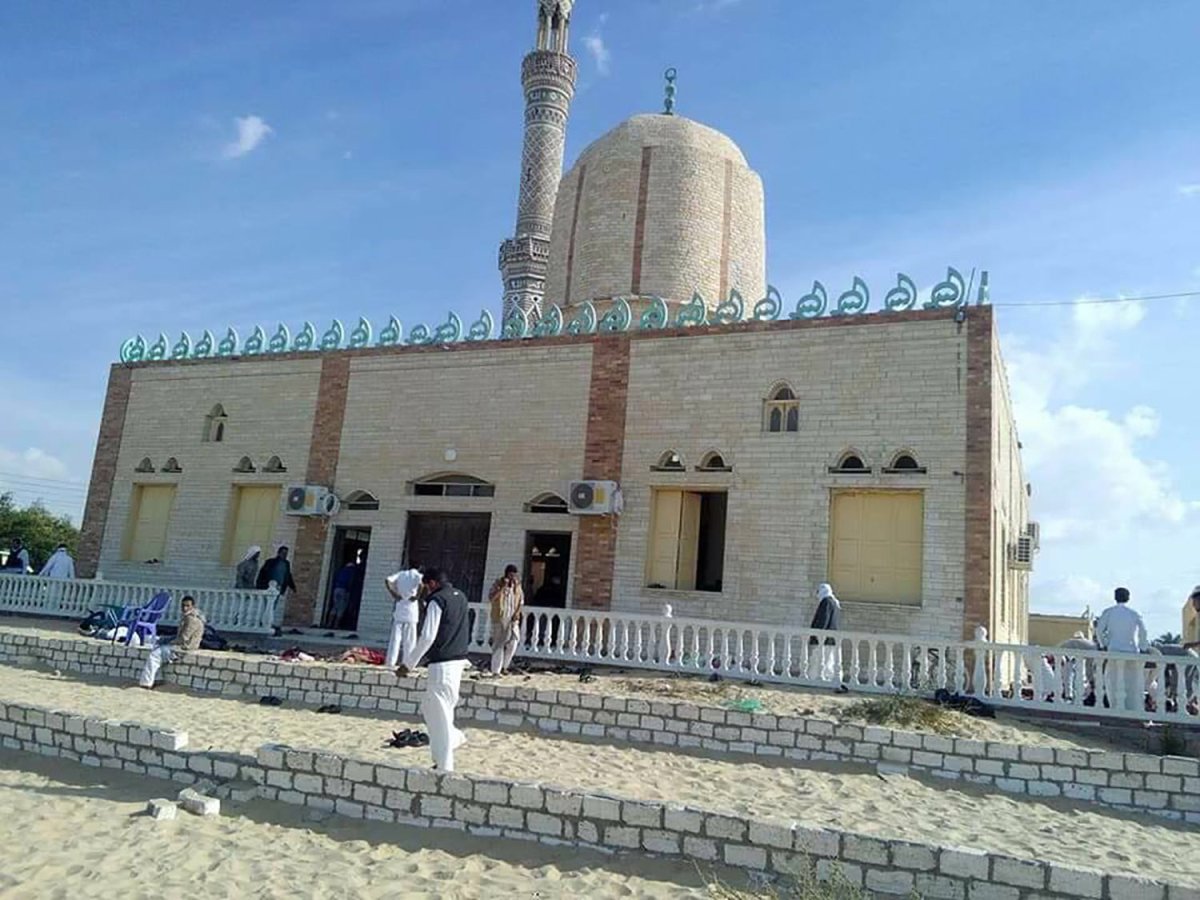
Radical Islamist militants converted the Al Rawdah Mosque in the town Bir al-Abd in Egypt's northern Sinai peninsula from a scene of prayer to a slaughterhouse on Friday. Jihadis detonated an explosive device and shot worshippers dead as they left the compound, which the gunmen had surrounded. In all, at least 235 people were left dead and 130 injured, according to state media.
No group had claimed responsibility as of Friday morning, but the region has been plagued with a Sunni insurgency against Egyptian security forces, Christians and pilgrims for years. But why did Muslims take aim at their fellow Muslims on the holiest day of the week in what was the deadliest extremist attack in Egyptian history?
The beliefs of those inside the mosque, and those laying siege to it, hold the clues.
The mosque, located some 40 kilometers west of the provincial capital of El Arish, is frequented by Sufi Muslim worshippers, according to Al-Arabiya news channel and local sources speaking to Reuters.
The Islamic State militant group (ISIS), which has established a local affiliate in the region, known as the Sinai Province, is the main suspect in the deadliest attack on Egyptian soil since the group's downing of a Russian jet in October 2015 that killed all 224 people on board.
And for hardline Salafis, Muslims who follow an ultraconservative, evangelical brand of Islam and whose followers include many ISIS jihadis, Sufi Muslims are heretics.
Sufi Islam is a mystical branch of the religion that worships saints and shrines, behavior that ISIS considers to be idolatrous. In the same way that the group's brutal jihadis view Egypt's Coptic Christian community with hate, and revile the Shiites of Iran and Iraq, they detest the Sufi branch of Islam.
The Sinai peninsula is home to both ultraconservative Sunni Muslims and Sufi Muslims, bringing both sects of Islam together, and leaving the Sufis vulnerable to targeted attacks.
ISIS has pinpointed the Sinai's Sufi population regularly in the past, including their grisly beheading of a top Sufi cleric in the region, Sheikh Suleiman Abu Heraz.
Elsewhere in South Asia and Middle East, ISIS has attacked Sufis, their mosques, their shrines and their gatherings. In 2014, they destroyed several Sufi Muslim shrines and tombs in the eastern Syrian province of Deir Ezzor.

In February, an ISIS suicide bomber attacked one of the most revered Sufi shrines in the world, Sehwan Sharif, located in the southern Sindh Province of Pakistan, killing 80 people and wounding more than 250.
Pakistan may be the country where Sufi Muslims have been most frequently targeted, by radical Islamists not only aligned to ISIS but also to the Pakistani Taliban. Attacks include the 2010 bombing of the tomb of Data Ganj Bakhsh, a shooting at the shrine of a Sufi saint in Karachi, and the assassination of Sufi singer Amjad Sabri last year.
Sufism's followers pledge allegiance to this mystical strand of Islam because they believe it can offer them proximity to God. For jihadis, however, Sufi followers deviate from the prescribed religious path of Islam, particularly with their veneration of tombs.
That distinction ultimately means that wherever Sufis remain in the Middle East, the sect will remain at risk from bloody massacres like the one witnessed in the town of Bir al-Abd on Friday.
Uncommon Knowledge
Newsweek is committed to challenging conventional wisdom and finding connections in the search for common ground.
Newsweek is committed to challenging conventional wisdom and finding connections in the search for common ground.
About the writer
Jack is International Security and Terrorism Correspondent for Newsweek.
Email: j.moore@newsweek.com
Encrypted email: jfxm@protonmail.com
Available on Whatsapp, Signal, Wickr, Telegram, Viber.
Twitter: @JFXM
Instagram: Read more
To read how Newsweek uses AI as a newsroom tool, Click here.








